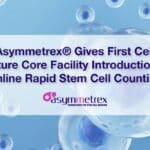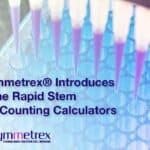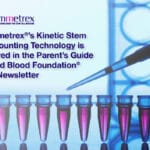Regenerative Medicine is Awaiting the Mass Production of Therapeutic Adult Tissue Stem Cells that is Possible with Asymmetrex’s SACK Technology and Use of Mouse | Rat | Human Tissue Cells
I. SACK Manufacturing of Human Adult Tissue Stem Cells
Asymmetrex has a vision of developing SACK manufacturing-scale processes for mass production of human tissue stem cells (and differentiated functional cells derived from them) for applications in stem cell transplantation medicine and drug development. For some tissue stem cell types, commercialization will be accomplished within Asymmetrex’s own business. However, for more rapid and wider dissemination of the technology, Asymmetrex will provide field of use-exclusive licenses to many other companies pursuing medical (or veterinary) cell therapy development and other regenerative medicine applications.
A. Progress with SACK-produced adult human liver tissue stem cells
Currently, Asymmetrex is exploring the feasibility of initiating a first commercial effort with its patented SACK-produced human liver stem cells. The SACK technology was successfully applied to produce tissue stem cell strains from both rat (see below) and human liver. On a laboratory scale, the human liver tissue stem cells can be propagated sufficiently to achieve trillion-cell quantities without loosing their capacity for tissue restorative asymmetric self-renewal. When SACK agents are removed from extensively propagated cells, they retain the ability to produce cells with properties of mature hepatocytes. If these properties can be maintained in a large-scale, GMP production process, Asymmetrex could supply human liver transplantation therapies for adults and children worldwide in perpetuity. The same SACK technology would provide the pharmaceutical industry with a first source of on-demand, renewable donor-specific hepatocytes for drug evaluations.
B. Progress with SACK-produced adult human pancreatic tissue stem cells
Asymmetrex recently demonstrated the effectiveness of SACK technology for producing human adult pancreatic tissue stem cells. Under SACK agent free conditions, these cell strains produce differentiated cells with properties of insulin-producing beta cells and glucagon-producing alpha cells. Additional development is needed for these new cell strains, before that are ready for trials to advance them from laboratory scale propagation to manufacturing scale production. At scale, they could be used to develop long-term cell transplantation therapies for type I diabetes patients. A patent application is under examination for the pancreatic stem cell SACK technology.
C. Progress with other SACK-produced adult tissue stem cells
Asymmetrex has also initiated preliminary evaluations of SACK technology for human skin stem cells and human blood (hematopoietic) stem cells. Although specific stem cell production has not been confirmed for these two tissues, their cultures show significant SACK-responsiveness, which is the earliest indication of adult tissue stem cell expansion. With continued growth of Asymmetrex’s research and development capital, we plan to advance these preliminary tests into major development efforts. In particular, success in SACK-production of human hematopoietic stem cells would address the ever present shortages of umbilical cord blood and donor bone marrow needed for bone marrow transplantation therapy.
II. SACK Production of Adult Tissue Stem Cells From Other Species
Because of the universality of asymmetric stem cell kinetics in all vertebrates and many invertebrate species as well, the SACK technology has a wide range of potential applications for biological research, bioengineering, and biomedicine. For example, its potential use to increase dairy production by increasing the number of mammary tissue stem cells in milk cows has been investigated; and it is highly effective for expanding adult tissue stem cells from laboratory mammals like the mouse and the rat. In fact, the first successful application of SACK technology was the independent production hepatocyte stem cells and bile epithelial stem cells from the liver of adult rats. The effectiveness of SACK technology for adult tissue stem cell expansion has also been established for rat lung smooth muscle stem cells, mouse skeletal muscle stem cells, mouse pancreatic tissue stem cells, and mouse hair follicle stem cells.
III. SACK-Produced Adult Tissue Stem Cells Available for Research and Commercial Development
SACK-produced adult tissue stem cell strains are currently available for licensing from Asymmetrex by one of two mechanisms. Arrangements can be made for licensing SACK stem cell strains whose properties have not been published by contacting us at [email protected]. Because of their source tissues, most of these strains can only be licensed for research purposes. Interested companies can investigate the properties of these prototype cell strains to evaluate their suitability for their commercial development needs. If there is continued interest after such preliminary research evaluations, Asymmetrex will work with the clients to arrange licensing and consulting for production of similar stem cell strains using the clients’ proprietary donor tissues.
The second mechanism is purchase of tissue stem cell strains, for research purposes use only, from Asymmetrex’s distribution partner Kerafast. The following stem cell strains are currently available for purchase.
Adult human liver tissue stem cells [SACK-Xs 12(3)]
Adult rat liver hepatocyte stem cells [SACK-Xs Lig-8]






Leave a Reply